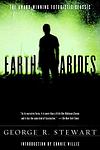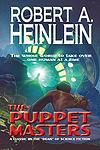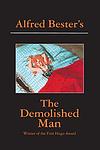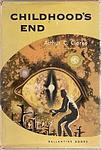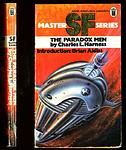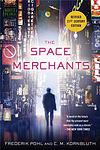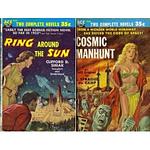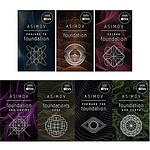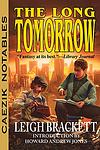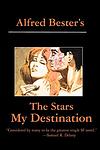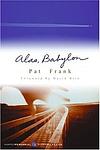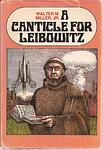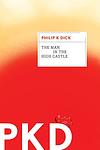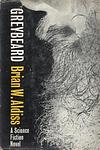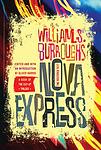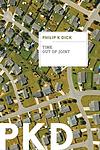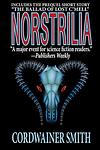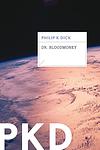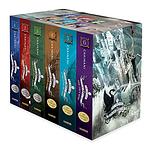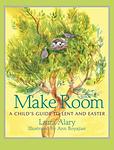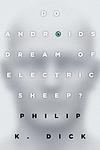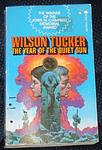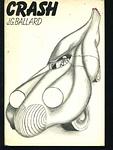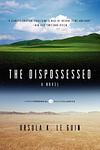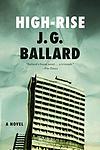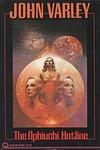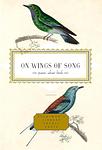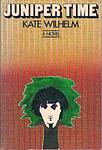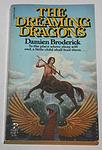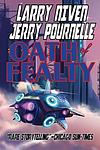Science Fiction: The 100 Best Novels
This is one of the 284 lists we use to generate our main The Greatest Books list.
-
Nineteen Eighty Four by George Orwell
Set in a dystopian future, the novel presents a society under the total control of a totalitarian regime, led by the omnipresent Big Brother. The protagonist, a low-ranking member of 'the Party', begins to question the regime and falls in love with a woman, an act of rebellion in a world where independent thought, dissent, and love are prohibited. The novel explores themes of surveillance, censorship, and the manipulation of truth.
-
Earth Abides by George Rippey Stewart
"Earth Abides" is a post-apocalyptic novel that follows the story of a geography student who returns from a solo trip in the mountains to find that most of humanity has been wiped out by a deadly plague. As one of the few survivors, he navigates through the deserted world, eventually forming a small community with other survivors. The novel explores themes of survival, the fragility of civilization, and the importance of community in the face of adversity.
-
The Martian Chronicles by Ray Bradbury
This science fiction novel is a collection of intertwined short stories that depict the colonization of Mars by humans fleeing from a troubled Earth, and the conflict between aboriginal Martians and the new colonists. The book delves into issues such as nuclear war, racism, and censorship. As the human settlers arrive and begin to shape the Martian landscape to their needs, they face a series of strange and haunting encounters with the Martian civilization, leading to unexpected and often tragic outcomes.
-
The Puppet Masters by Robert A. Heinlein
In a world where alien parasites have invaded Earth, a secret government agency known as the Special Service battles to protect humanity from the mind-controlling creatures. When a team of agents discovers a small town completely taken over by the parasites, they must find a way to eliminate the threat before it spreads and enslaves the entire planet. As they uncover the horrifying truth behind the invasion, the agents must confront their own fears and make difficult choices to save humanity from becoming mere puppets in the hands of an extraterrestrial enemy.
-
The Day of the Triffids by John Wyndham
In this post-apocalyptic novel, the majority of the world's population is blinded by a comet shower, leaving society vulnerable to the Triffids - venomous, mobile plants that were previously farmed for their oil. The protagonist, who retains his sight after being hospitalized during the comet shower, must navigate this new world, dealing with the Triffids and the desperate remnants of humanity. The novel explores themes of survival, adaptation, and the inherent fragility of civilization.
-
Limbo by Bernard Wolfe
"Limbo" is a thought-provoking science fiction novel set in a post-apocalyptic future where the world has been ravaged by nuclear war. In this society, the concept of disarmament has been taken to an extreme, with individuals voluntarily amputating their limbs and relying on robotic prosthetics as a means to prevent further violence. The narrative follows the journey of a psychologist who, after returning from a self-imposed exile, grapples with the moral and ethical implications of this new form of self-mutilation, which is seen as a path to personal and global peace. The book delves into themes of human nature, the psychology of violence, and the quest for utopia, challenging readers to consider the price of peace and the nature of humanity's relationship with technology.
-
The Demolished Man by Alfred Bester
In a future society where telepaths, known as Espers, are integrated into all levels of society, a powerful businessman plots the perfect murder, believing he can outwit the telepathic police. His cat-and-mouse game with a determined Esper detective unfolds in a world where mental privacy is nearly extinct, and the concept of crime has taken on new meaning. The businessman's struggle against the pervasive telepathic surveillance and his own conscience leads to a suspenseful and philosophical exploration of free will, guilt, and the possibility of redemption.
-
Fahrenheit 451 by Ray Bradbury
In a dystopian future where books are banned and burned by the government to prevent dissenting ideas, a fireman named Guy Montag, whose job is to burn books, begins to question the society he serves. After a series of events, including meeting a free-thinking teenager and witnessing a woman choosing to die with her books, Montag begins to secretly collect and read books, leading to his eventual rebellion against the oppressive regime. The narrative serves as a critique of censorship, conformity, and the dangers of an illiterate society.
-
Childhood's End by Arthur C. Clarke
"Childhood's End" is a thought-provoking science fiction novel that explores the evolution of humanity under the guidance of mysterious extraterrestrial beings known as the Overlords. Set in the near future, the book follows the transformation of society as the Overlords bring peace, prosperity, and advanced technology to Earth. However, as the human race reaches a new level of enlightenment, questions arise about the true intentions of the Overlords and the future of humanity itself.
-
The Paradox Men by Charles L. Harness
Set in a future where the United States has become a dictatorship known as the Imperial States of America, the narrative revolves around a group of rebels who possess extraordinary abilities, such as telekinesis and telepathy. The story follows Alar, a man with amnesia and a mysterious past, who becomes entangled with the Paradox Men, a band of revolutionaries intent on overthrowing the oppressive regime. As Alar's memories slowly return, he discovers his crucial role in both the past and future of humanity, involving time travel, a pivotal duel, and the fate of the world hanging in the balance. The novel combines elements of science fiction and adventure, exploring themes of power, identity, and the cyclical nature of history.
-
Bring The Jubilee by Ward Moore
This novel presents an alternate history where the Confederate States of America won the Civil War, leading to a vastly different 20th century. The protagonist, hailing from a diminished and impoverished United States, becomes involved with a community of scholars and eventually gains access to a time machine. Driven by curiosity and a desire to understand how history could have been different, he inadvertently causes the very outcome he sought to prevent, ensuring the Confederacy's victory at the pivotal Battle of Gettysburg. The book explores themes of destiny, the impact of individual actions on history, and the nature of progress in a society shaped by a different set of historical winners and losers.
-
The Space Merchants by Frederik Pohl, C.M. Kornbluth
"The Space Merchants" is a dystopian science fiction novel set in a future where corporations have taken over the world and consumerism is rampant. The story follows a talented advertising executive who is tasked with creating an ad campaign to entice people to colonize Venus. As he delves deeper into his work, he uncovers the dark secrets behind the corporate-controlled society and becomes determined to fight against the oppressive system.
-
Ring Around The Sun by Clifford D. Simak
In this science fiction novel, the world is undergoing mysterious changes as duplicate, superior products begin to appear, driving traditional companies out of business. The protagonist, a journalist, discovers that these products are being introduced by an enigmatic group with the ability to move between parallel Earths. As he delves deeper into the mystery, he learns about the existence of a secret, long-lived mutant race with plans to shepherd humanity towards a brighter future. The narrative explores themes of progress, the nature of reality, and the evolution of humanity, all set against the backdrop of a world where the familiar is being replaced by the strange and the advanced.
-
More Than Human by Theodore Sturgeon
"More Than Human" is a science fiction novel that explores the concept of evolution and the potential of human abilities. The story revolves around a group of outcasts with extraordinary abilities, including telepathy and teleportation, who form a collective consciousness, effectively becoming a single entity. As they struggle to understand their nature and purpose, they must also navigate the complexities of human society and morality. The novel poses profound questions about what it means to be human and the potential future of human evolution.
-
Mission Of Gravity by Hal Clement
In a fascinating and imaginative science fiction novel, "Mission of Gravity" takes readers on an extraordinary journey to the planet Mesklin. The story follows a team of explorers as they navigate the extreme gravitational pull of this peculiar world, where the inhabitants are shaped by this force. With vivid descriptions and intricate world-building, the book explores the challenges and wonders of Mesklin, offering a thrilling and thought-provoking adventure.
-
A Mirror For Observers by Edgar Pangborn
The book is a science fiction narrative set on Earth, where two factions of Martians, having abandoned their dying planet, secretly live among humans. The story focuses on the ideological conflict between these factions: one seeks to guide humanity towards a more enlightened and peaceful future, while the other aims to manipulate and control for their own benefit. The plot revolves around the relationship between a Martian Observer and a young human prodigy, whose development and potential impact on Earth's future becomes the crux of the Martians' covert struggle. The novel explores themes of morality, the potential of humanity, and the influence of external forces on the course of civilization.
-
The End Of Eternity by Isaac Asimov
"The End of Eternity" is a thought-provoking science fiction novel that explores the concept of time travel and its consequences. Set in a future where a secretive organization called Eternity monitors and manipulates time to prevent catastrophic events, the story follows Andrew Harlan, a "Technician" tasked with altering the past to shape a more desirable future. However, when Harlan falls in love with a woman from the past, he begins to question the morality and ethics of his actions, ultimately leading to a mind-bending revelation about the true nature of Eternity.
-
The Long Tomorrow by Leigh Brackett
Set in a post-apocalyptic future where society has shunned technology following a devastating nuclear war, the novel follows two cousins, Len and Esau, who are raised in a strict religious community that fears innovation. When the boys encounter a man who speaks of a city where technology still exists, their curiosity is piqued, leading them on a perilous journey in search of this mythical place. Along the way, they confront the dangers of the outside world, challenge their ingrained beliefs, and ultimately must decide between the safety of their traditional way of life and the allure of a potentially brighter, but uncertain, future driven by the rediscovery of technological advancement.
-
The Inheritors by William Golding
This novel offers a unique perspective on the dawn of human consciousness, telling the story of a group of Neanderthals who encounter a new and advanced species, Homo sapiens. Through the eyes of these early humans, the book explores themes of survival, communication, and the often brutal nature of evolution. As the Neanderthals struggle to understand and coexist with these newcomers, their simple and trusting way of life is challenged, leading to a poignant reflection on the inevitable march of progress and the displacement of one world by another.
-
The Stars My Destination by Alfred Bester
In a future where teleportation is possible, Gully Foyle, a lowly spaceship crew member, survives a catastrophic accident and is left stranded in space. Driven by a burning desire for revenge against those who abandoned him, he undergoes a physical and mental transformation, becoming a force to be reckoned with. As he navigates a world filled with political intrigue, powerful corporations, and mysterious psychic abilities, Gully's journey becomes a thrilling exploration of identity, revenge, and the power of the human spirit.
-
The Death Of Grass by John Christopher
In this post-apocalyptic novel, a catastrophic virus has decimated global agriculture by destroying grass crops, leading to widespread famine and societal collapse. The narrative follows a group of survivors as they navigate the perilous new world, grappling with the moral dilemmas of survival and the breakdown of civilization. As they journey across a desolate England in search of a safe haven, the characters are forced to confront the dark and violent aspects of human nature that emerge when the veneer of society is stripped away. The story is a chilling exploration of the fragility of human societies and the ethical boundaries that are tested in the face of desperation and chaos.
-
The City And The Stars by Arthur C. Clarke
"The City and the Stars" is a science fiction novel set in a far future where humans live in a seemingly perfect city called Diaspar. However, the protagonist, Alvin, feels trapped by the city's immortality and lack of progress. As he embarks on a journey to discover the truth about Diaspar's origins, he uncovers a forgotten past and confronts the mysteries of the universe, ultimately challenging the very foundation of his existence.
-
The Door Into Summer by Robert A. Heinlein
In this science fiction novel, a talented engineer named Dan Davis finds himself betrayed by his business partner and girlfriend. Disillusioned and heartbroken, he decides to enter suspended animation until the year 2000. However, when he wakes up, he discovers that it is only 30 years later and the world has drastically changed. Determined to seek justice and reclaim his life, Dan embarks on a thrilling journey through time, encountering advanced technology, unexpected allies, and the possibility of finding love again.
-
The Midwich Cuckoos by John Wyndham
In a small English village, an inexplicable event causes everyone within its boundaries to fall unconscious for an entire day. When they awaken, it's discovered that all women of childbearing age are pregnant, and the children born from these pregnancies are eerily identical with golden eyes and telepathic abilities. As these children grow, their collective power increases, causing fear and tension among the villagers. The narrative explores themes of fear of the unknown, societal norms, and the power dynamics between adults and children.
-
Non Stop by Brian W. Aldiss
In this gripping science fiction novel, a group of humans living on a generational spaceship called the "Non-Stop" embark on a dangerous journey through a mysterious and ever-changing environment. As they navigate the treacherous landscape, they encounter strange creatures and uncover shocking secrets about their own existence. Filled with suspense and thought-provoking themes, the book explores the human instinct for survival and the limits of knowledge in an unfamiliar world.
-
A Case of Conscience by James Blish
In this science fiction novel, a Jesuit priest and biologist, part of a four-man scientific commission, grapples with a moral dilemma after studying the inhabitants of the planet Lithia. The Lithians are an advanced, peaceful reptilian species living in an apparent utopia without any concept of religion or God. The priest's crisis deepens as he questions whether the Lithians' society is inherently evil, a creation of Satan designed to challenge faith, or if it can coexist with human and Christian values. His quandary is compounded when he is given a Lithian egg to take back to Earth, which hatches into a creature that could influence the future of humanity and challenge the very foundations of his beliefs.
-
Have Space Suit—Will Travel by Robert A. Heinlein
In this science fiction novel, a high school student named Kip Russell wins a used spacesuit in a contest, but soon finds himself in a real-life space adventure. After being kidnapped by extraterrestrial beings, Kip must use his wit and resourcefulness to navigate through various interstellar challenges and ultimately save the Earth from an impending alien invasion. Along the way, he encounters strange creatures, forms unexpected friendships, and learns valuable lessons about courage and the power of determination.
-
Time Out Of Joint by Philip K. Dick
In "Time Out Of Joint," a seemingly ordinary man named Ragle Gumm lives a mundane life in a small town, unaware that his reality is a carefully constructed illusion. As strange occurrences and inconsistencies start to unravel around him, Ragle begins to question his existence and the truth behind his surroundings. With the help of a mysterious young woman, he embarks on a journey to uncover the secrets of his world and his true identity, leading to a mind-bending revelation that challenges everything he thought he knew.
-
Alas, Babylon by Pat Frank
"Alas, Babylon" is a post-apocalyptic novel set during the height of the Cold War. The story follows the residents of a small town in Florida as they struggle to survive after a nuclear attack devastates the United States. With limited resources and the breakdown of society, the townspeople must come together and rely on their ingenuity and resilience to rebuild their lives and create a new community in the aftermath of destruction.
-
A Canticle for Leibowitz by Walter M. Miller
"A Canticle for Leibowitz" is a post-apocalyptic science fiction novel that explores the cyclical nature of history through the lens of a Catholic monastery in the American Southwest. After a devastating nuclear war, the monks of the Albertian Order of Leibowitz work to preserve the remnants of mankind's scientific knowledge until the world is again ready for it. Over the course of centuries, civilization rises and falls, wars are fought, and scientific advancements are rediscovered and then lost again. The novel is a poignant commentary on the potential for humanity to repeat its mistakes.
-
The Sirens of Titan by Kurt Vonnegut
The novel explores the life of Malachi Constant, the richest man in a future America, who has gained his wealth due to his father's foresight in investing in companies that benefit from the space race. The narrative takes him from Earth to Mars, Mercury, back to Earth, and finally to one of Saturn's moons, Titan. Along the way, he experiences a series of bizarre, humorous, and tragic events that reveal the senselessness of war and the emptiness of a life devoid of love. The novel offers a biting critique of capitalism, militarism, and religion, while also exploring themes of free will, determinism, and the search for meaning.
-
Rogue Moon by Algis Budrys
The novel explores the psychological toll of exploration and discovery as it follows the story of a mysterious alien artifact on the moon that kills anyone who attempts to traverse its deadly labyrinth. To understand its secrets, a technology is developed that allows a person's memories and experiences to be transmitted to a duplicate on Earth before death, effectively allowing for repeated attempts to solve the puzzle. The protagonist, a fearless adventurer, is recruited for this mission and must confront not only the physical dangers of the alien structure but also the existential implications of his own repeated deaths and the strain it places on his sense of identity and sanity. The narrative delves into themes of human ambition, the limits of knowledge, and the nature of courage in the face of the unknown.
-
Venus Plus X by Theodore Sturgeon
In this science fiction novel, a human from the 20th century awakens in a future utopian society on another planet where traditional gender roles and sexual identities have been transcended. The inhabitants of this world, who all appear androgynous, live in harmony, free from the conflicts and inequalities that plague the protagonist's time. Through the protagonist's eyes, the reader explores the complexities of this society, including its advanced technology, social structures, and the psychological and cultural shifts that have allowed for such a peaceful existence. The novel challenges contemporary notions of gender and sexuality, presenting a radical vision of a world where humanity has evolved beyond the binary constructs that currently define us.
-
Hothouse by Brian W. Aldiss
In the science fiction novel "Hothouse," the Earth has stopped rotating, presenting a world where one side perpetually faces the sun, resulting in a dense, tropical environment overrun by aggressive plant life. The remaining human descendants, now diminutive and struggling for survival, navigate this lush yet dangerous landscape. The story follows a group of these humans as they embark on a perilous journey across the giant banyan tree that spans the globe, encountering bizarre creatures and remnants of past civilizations, while also grappling with the existential threat posed by a rapidly evolving and encroaching vegetation that threatens to engulf what's left of humanity.
-
The Drowned World by J. G. Ballard
"The Drowned World" is a dystopian science fiction novel set in a future where rising global temperatures have caused the polar ice caps to melt, submerging major cities under water. As the Earth becomes a tropical wasteland, the protagonist, a biologist named Robert Kerans, explores the surreal and decaying landscape of flooded London. Amidst the dangerous and primal environment, Kerans confronts his own psychological disintegration while encountering a group of eccentric characters who have adapted to the new world in bizarre and unsettling ways.
-
A Clockwork Orange by Anthony Burgess
This novel follows the life of a violent young man named Alex, who is part of a youth subculture in a dystopian future England. Alex and his gang engage in a nightmarish spree of rape, assault, and robbery, until he is arrested and subjected to a psychological experiment by the government to "cure" him of his violent tendencies. The novel explores themes of free will, morality, and the nature of evil, while using a unique slang language invented by the author.
-
The Man in the High Castle by Philip K. Dick
Set in an alternate history where the Axis powers won World War II, this novel explores life in a world where the United States is divided into three parts: the Pacific States of America, controlled by Japan; the Rocky Mountain States, a neutral buffer zone; and the United States of America, controlled by Nazi Germany. The story follows several characters, including a jewelry designer, a trade minister, and a German secret agent, as they navigate this dystopian reality. The narrative is further complicated by the existence of a banned novel that depicts an alternate reality where the Allies won the war, causing characters to question their understanding of reality.
-
Journey Beyond Tomorrow by Robert Sheckley
"Journey Beyond Tomorrow" is a satirical science fiction novel that follows the adventures of Joenes, an American everyman, as he navigates a bizarre and fragmented future society after the collapse of Western civilization. Through a series of absurd and often humorous encounters, Joenes explores various dystopian communities, each embodying extreme and distorted versions of contemporary social, political, and philosophical ideologies. The narrative, structured as a pseudo-anthropological account, critiques the follies of human nature and the idiosyncrasies of 20th-century life, ultimately presenting a whimsical yet incisive commentary on the human condition and the potential pitfalls of progress.
-
Way Station by Clifford D. Simak
"Way Station" is a science fiction novel set in rural Wisconsin, where Enoch Wallace operates a mysterious way station that serves as a resting place for alien travelers. Enoch, who is over a century old but appears to be in his thirties, is tasked with maintaining the balance between Earth and the intergalactic community. As the government becomes suspicious of his activities and threatens to expose the truth, Enoch must navigate the complexities of loyalty, morality, and the survival of humanity.
-
Cat's Cradle by Kurt Vonnegut
This novel is a satirical commentary on modern man and his madness, exploring issues of science, technology, and religion. The story revolves around a narrator who becomes involved with the children of a deceased scientist, who had developed a substance capable of freezing water at room temperature. This substance, if misused, has the potential to end all life on earth. The novel is filled with strange and twisted characters, and culminates in a cataclysmic event, highlighting the dangers of uncontrolled technological advancement.
-
Greybeard by Brian W. Aldiss
Set in a post-apocalyptic world where global infertility has led to an aging population, the novel follows the journey of an elderly man and his wife as they navigate a crumbling society. With no children to inherit the Earth, the remnants of humanity are left to confront their impending extinction. The protagonist, known by his nickname, and his spouse decide to leave their quiet river settlement in search of a rumored community of young people. Along the way, they encounter various groups and individuals, each coping with the decline of human civilization in their own way, ultimately leading to a profound exploration of mortality, loss, and the human condition in the face of an inevitable end.
-
Nova Express by William S. Burroughs
In this experimental novel, the protagonist, a detective, navigates a dystopian world where control systems manipulate human behavior. The narrative is a complex interweaving of hallucinatory landscapes and seedy characters, punctuated by the author's unique 'cut-up' technique. The book is a critique of societal control mechanisms, exploring themes of addiction, sexuality, and the human condition. It is part of a larger series that uses science fiction and satire to challenge conventional narrative structures and societal norms.
-
Martian Time Slip by Philip K. Dick
"Martian Time Slip" is a science fiction novel set in a future where humans have colonized Mars. The story follows a group of characters, including a repairman, a government official, and a schizophrenic boy, as they navigate the complexities of Martian society and the challenges of living on a harsh and unforgiving planet. Through their experiences, the book explores themes of time manipulation, mental illness, and the struggle for survival in an alien environment.
-
The Three Stigmata Of Palmer Eldritch by Philip K. Dick
"The Three Stigmata of Palmer Eldritch" is a mind-bending science fiction novel set in a future where humanity has colonized other planets. The story follows a group of individuals who become entangled in the mysterious and hallucinatory world of a powerful drug called Chew-Z. As they navigate through the blurred lines between reality and illusion, they must confront their deepest fears and question the nature of existence itself. With its thought-provoking themes and intricate plot twists, the book explores the boundaries of perception, identity, and the human condition.
-
The Wanderer by Fritz Leiber
"The Wanderer" is a science fiction novel that explores the chaos and wonder that ensues when a mysterious, planet-sized object appears in Earth's orbit, causing widespread destruction through tidal effects and societal upheaval. As the celestial visitor, dubbed "The Wanderer," reveals its patchwork surface of alien landscapes, a diverse cast of characters from across the globe—including a poet, a scientist, and a pair of lovers—must confront their existential crises and navigate the new reality. Their interconnected stories delve into themes of curiosity, resilience, and the human spirit's response to the unknown, all while humanity grapples with the potential end of the world and the possibility of extraterrestrial contact.
-
Norstrilia by Cordwainer Smith
The book is a science fiction tale set in the far future, where humanity has spread across the stars and a young boy from the planet Norstrilia, which is the sole source of an incredibly valuable drug that prolongs life, becomes the wealthiest person in the galaxy due to a quirk in the drug's trade laws. To escape jealous neighbors and to experience life beyond his home, he purchases Earth, a planet that has become a historical theme park. The story weaves through his adventures and misadventures, as he navigates complex societal norms, encounters a variety of unique characters, and grapples with the meaning of wealth, power, and immortality in a universe where every human enhancement is possible, but the essence of humanity is hard to define.
-
Dr. Bloodmoney by Philip K. Dick
Set in a post-apocalyptic world, the novel explores the lives of survivors after a nuclear catastrophe has ravaged Earth. The story intertwines the fates of various characters, including a phocomelic radio personality who broadcasts from a satellite, a young girl with telepathic abilities, and the eponymous Dr. Bloodmoney, a sinister scientist whose experiments may have contributed to the disaster. As the survivors navigate a transformed society filled with strange mutations and remnants of the past, they confront the challenges of rebuilding civilization and the complexities of human nature in the face of existential threats.
-
Dune by Frank Herbert
Set in a distant future, the novel follows Paul Atreides, whose family assumes control of the desert planet Arrakis. As the only producer of a highly valuable resource, jurisdiction over Arrakis is contested among competing noble families. After Paul and his family are betrayed, the story explores themes of politics, religion, and man’s relationship to nature, as Paul leads a rebellion to restore his family's reign.
-
The Crystal World by J. G. Ballard
"The Crystal World" by J. G. Ballard is a mesmerizing and haunting novel that takes place in a remote African jungle, where a mysterious phenomenon is turning everything into crystal. As the crystallization spreads, it threatens to engulf the entire world, trapping its inhabitants in a frozen and beautiful but deadly landscape. Amidst this surreal backdrop, the characters grapple with their own desires, fears, and the inevitable decay of life, blurring the boundaries between reality and fantasy. Ballard's evocative prose and exploration of themes such as time, love, and the fragility of existence make this a thought-provoking and unforgettable read.
-
Make Room! Make Room! by Harry Harrison
Set in a dystopian future where overpopulation has led to a severe scarcity of resources, the novel paints a grim picture of a world teetering on the brink of collapse. In a sweltering, overcrowded New York City of 1999, the story follows a weary police detective as he investigates a murder amidst the chaos of a society strained by environmental degradation and social unrest. With food and water in short supply, the narrative explores the ethical and moral dilemmas faced by individuals struggling to survive in a world where the very concept of personal space has become a luxury few can afford, and the population continues to grow despite the planet's dwindling capacity to sustain it.
-
Flowers for Algernon by Daniel Keyes
The book is a poignant science fiction narrative that follows the life of Charlie Gordon, a man with an IQ of 68, who undergoes an experimental surgical procedure intended to increase his intelligence. The story is told through Charlie's progress reports, which initially showcase his limited comprehension and writing ability. As the treatment takes effect, Charlie's intelligence surpasses that of the average person, leading to a dramatic increase in his understanding of the world, relationships, and his own past. However, the transformation is not without its pitfalls, as Charlie grapples with the emotional and social implications of his newfound abilities, and the impermanence of the experiment's success becomes a haunting reality. The novel explores themes of intellect, human dignity, and the ethics of scientific experimentation.
-
The Dream Master by Roger Zelazny
In this science fiction novel, a psychotherapist uses advanced technology to enter his patients' dreams and treat their mental illnesses. The protagonist, who is considered the best in his field, encounters a new challenge when he meets a patient with an extraordinary imagination that blurs the lines between dreams and reality. As the therapist navigates the patient's intricate dreamscapes, he confronts ethical dilemmas and the potential dangers of manipulating the human mind, leading him to question the limits of his practice and the consequences of his interventions on the human psyche.
-
Stand on Zanzibar by John Brunner
The novel is a dystopian vision of the year 2010, where the world grapples with overpopulation, ecological disasters, and widespread social unrest. It follows a multitude of characters, including a high-level executive and a data analyst, as they navigate a society dominated by multinational corporations and a supercomputer that predicts social trends. The narrative is fragmented, employing a unique style that interweaves different types of texts to reflect the chaotic and information-saturated world it depicts. Themes of eugenics, media saturation, and corporate power are explored in a world that is at once technologically advanced and socially fragmented.
-
Nova by Samuel R. Delany
"Nova" is a science fiction novel set in a distant future where humanity has colonized different planets. The story follows a young spaceship captain named Lorq Von Ray, who embarks on a dangerous mission to retrieve a rare substance called Illyrion from the heart of a dying star. Along the way, Lorq faces personal challenges, encounters rivalries, and navigates complex relationships, all while exploring themes of identity, power, and the nature of humanity.
-
Do Androids Dream of Electric Sheep? by Philip K. Dick
Set in a post-apocalyptic world, the novel presents a future where Earth's life has been greatly damaged by a nuclear global war, leaving most species extinct. The remaining human population has been encouraged to emigrate to off-world colonies to preserve the human race. Those who remain on Earth are tasked with maintaining the ecological balance by owning and caring for animals, replacing extinct species with mechanical replicas when necessary. The story revolves around a bounty hunter, who is tasked with "retiring" rogue androids that pose a threat to humans, and his emotional and moral struggles as he goes about his work.
-
Camp Concentration by Thomas M. Disch
In this speculative fiction novel, the story unfolds in a dystopian future where the U.S. government, engaged in an unwinnable war, turns to unethical experiments to enhance human intelligence. Prisoners are injected with a syphilis strain designed to boost their intellect while shortening their lifespan. The narrative, presented through the journal entries of a conscientious objector who becomes an inmate and an observer of the program, explores the moral and philosophical implications of sacrificing humanity for the sake of intellectual advancement. As the experiment progresses, the heightened intelligence of the inmates leads to unforeseen consequences, challenging the very nature of power, knowledge, and the human condition.
-
The Final Programme by Michael Moorcock
The book follows the adventures of Jerry Cornelius, a hip, amoral, and sexually ambiguous anti-hero, who is an incarnation of the Eternal Champion, a recurring character in the author's works. Set in a dystopian near-future, Cornelius is a physicist and playboy who becomes embroiled in a quest to construct the perfect human being through the Final Programme, a project that aims to create a new messiah figure for a world on the brink of collapse. The narrative is characterized by its satirical tone, blending elements of science fiction, dark humor, and countercultural commentary, as Cornelius navigates a landscape of eccentric characters, chaotic events, and shifting allegiances.
-
Pavane by Keith Roberts
Set in an alternate history where the Protestant Reformation was crushed and the Catholic Church dominates Europe, the book presents a series of interconnected stories unfolding in a 20th-century England still feudal in nature. The narrative weaves through the lives of various characters, from a steam-engine driver to a noblewoman, each story revealing facets of a society where technology progresses under the Church's restrictive influence. The tales, akin to a dance, explore themes of rebellion, tradition, and the delicate interplay of power and control, all set against the backdrop of a world that evolved along a path starkly different from our own.
-
Heroes And Villains by Angela Carter
In "Heroes and Villains," the reader is plunged into a post-apocalyptic world where society has collapsed into barbarism and decay. The story follows Marianne, a young woman from a sheltered community of scholars, who becomes fascinated by the outside world and is eventually abducted by a group of nomadic savages. As she integrates into their society, she forms a complex relationship with the group's charismatic leader, Jewel. The novel explores themes of civilization versus savagery, the fluidity of roles between heroes and villains, and the nature of power and desire, all set against a backdrop of a dystopian landscape that challenges the characters' understanding of humanity and morality.
-
The Left Hand Of Darkness by Ursula K. Le Guin
The novel is a groundbreaking work of science fiction that explores themes of gender, politics, and identity. Set on a planet called Gethen, where the inhabitants are ambisexual, shifting between male and female, the story follows an envoy from Earth who struggles to understand this alien society. As he navigates the complex political landscape of Gethen, he must also grapple with his own preconceptions about gender and sexuality. The book is a profound exploration of difference, otherness, and what it means to be human.
-
The Palace Of Eternity by Bob Shaw
In this science fiction novel, the story unfolds on a far-future Earth where humanity has achieved a level of technological advancement that allows for the creation of a monumental structure known as the Palace of Eternity. This edifice serves as a sanctuary for the preservation of human knowledge and culture, standing as a testament to the civilization's achievements. The protagonist, a man deeply involved with the project, finds himself grappling with profound philosophical and moral questions about the nature of immortality, the value of human experience, and the consequences of eternal life. As he navigates a complex web of personal and societal challenges, the narrative explores themes of love, loss, and the enduring quest for meaning in an ever-changing universe.
-
Bug Jack Barron by Norman Spinrad
The novel revolves around Jack Barron, a talk show host who becomes embroiled in a complex web of political intrigue and corruption. As he investigates the activities of a powerful immortality corporation, he uncovers a sinister plot involving the exploitation of the poor for the benefit of the rich. The story is set in a near-future America and tackles themes of media manipulation, corporate power, and the ethical implications of life extension technologies. Barron's journey forces him to confront his own ambitions and desires, as he becomes a pivotal figure in a struggle that could reshape society.
-
Tau Zero by Poul Anderson
In this science fiction novel, a group of scientists and astronauts embark on a mission to explore distant galaxies. However, their ship encounters a catastrophic accident that causes it to accelerate uncontrollably, reaching speeds close to the speed of light. As they hurtle through space, the crew must grapple with the effects of time dilation, facing the prospect of spending centuries on board while only a few years pass on Earth. With limited resources and an uncertain future, they must confront their own mortality and find a way to survive in the vastness of space.
-
Downward To The Earth by Robert Silverberg
In this science fiction novel, a former colonial administrator returns to the alien world he once helped govern, seeking redemption for his past exploitation of the planet's sentient species. The planet, now free from human rule, is home to enigmatic and spiritually advanced elephant-like creatures and a mysterious life-transforming ritual. As the protagonist embarks on a journey of self-discovery and atonement, he confronts the moral complexities of colonialism, his own guilt, and the profound mysteries of an alien culture that challenges his understanding of consciousness and redemption.
-
The Year Of The Quiet Sun by Wilson Tucker
The novel is a science fiction tale that explores the concept of time travel and its implications on human society. Set in a near-future America, the story follows a government project that sends a team of researchers back and forth in time to gather information about the future of the nation and the world. As the team witnesses various potential timelines, they grapple with ethical dilemmas, the consequences of their knowledge, and the impact of their actions on the course of history. The narrative delves into themes of political unrest, social decay, and the responsibility that comes with foresight, all while questioning the very nature of destiny and free will.
-
334 by Thomas M. Disch
The book is a speculative fiction novel set in a dystopian future New York City in the year 2025. It revolves around the lives of residents in a government-subsidized housing project known as 334, where the characters grapple with a range of social and personal issues in a society marked by overpopulation, eugenics, and a welfare state. The narrative is divided into interconnected stories that explore themes of reality versus illusion, the nature of happiness, and the impact of societal structures on individual lives. The novel presents a bleak and satirical vision of the future, characterized by dark humor and a complex portrayal of human resilience in the face of a dehumanizing system.
-
The Fifth Head Of Cerberus by Gene Wolfe
The book is a complex interweaving of three novellas set in a distant future where humans have colonized twin planets. The narrative explores themes of identity, colonialism, and the nature of consciousness. The first story follows a young man's coming-of-age in a society where cloning and genetic manipulation are common, leading him to question his own origin and purpose. The second and third stories delve into the history of the colonized worlds, examining the fate of the indigenous shape-shifting species and the reliability of memory and history. Through its intricate storytelling, the work challenges the reader to ponder the essence of humanity and the impact of cultural erasure.
-
The Dancers At The End Of Time by Michael Moorcock
Set in a far-flung, decadent future where the Earth is at the brink of its existence, the narrative unfolds in a society that has mastered time travel and harnessed the power to manipulate reality. The inhabitants, who are the last remnants of humanity, live in a state of hedonistic and aesthetic abandon, with little regard for consequences. The story centers around a love affair between a time-traveling aristocrat from this era and a 19th-century woman, whose arrival disrupts the status quo. As they navigate the complexities of their relationship, they explore various epochs and grapple with the moral and philosophical dilemmas posed by their vastly different worldviews and the impending collapse of their time.
-
Crash: A Novel by J. G. Ballard
The novel revolves around a man who becomes sexually aroused by staging and participating in real car-crashes, a fetish that spirals further out of control when he meets a like-minded woman. It explores the disturbing intersection of technology, sexuality, and violence, pushing the boundaries of social norms and challenging the reader's perception of reality.
-
Looking Backward, From The Year 2000 by Mack Reynolds
The book is a speculative science fiction narrative that explores the socio-economic landscape of the year 2000 from the perspective of a time traveler who has journeyed from the mid-20th century. The protagonist discovers a world that has undergone dramatic changes, with the United States having evolved into a utopian socialist society where poverty, crime, and inequality have been eradicated. The story delves into the cultural, technological, and political advancements that have shaped this future society, offering a critique of the author's contemporary social issues through the lens of an imagined future. The novel serves as both a hopeful vision and a cautionary tale, reflecting on the potential directions humanity could take.
-
The Embedding by Ian Watson
In this science fiction novel, the story intertwines linguistic theory with alien contact, exploring the Sapir-Whorf hypothesis that language shapes thought. The narrative follows a linguist who experiments with embedding deep grammatical structures into the human brain, aiming to unlock greater cognitive potential. Concurrently, an alien race makes contact with Earth, possessing a language that reflects their unique perception of reality. As human subjects begin to exhibit extraordinary mental abilities due to the linguistic enhancements, the novel delves into the implications of communication and understanding across different species and the profound effects language has on the human mind and inter-species relationships.
-
Walk To The End Of The World by Suzy McKee Charnas
Set in a post-apocalyptic future, the novel unfolds in a society where men have established a brutal patriarchal regime following a catastrophic event known as the Wasting. Women, referred to as "Fems," are enslaved and blamed for the downfall of civilization. The story follows Alldera, a female slave, who navigates the treacherous landscape of oppression and survival. As she encounters various characters, including a disillusioned soldier and a group of rebels, Alldera becomes embroiled in a quest that could lead to the overthrow of the oppressive order. The narrative explores themes of power, resistance, and the possibility of redemption in a world ravaged by the consequences of environmental and social collapse.
-
The Centauri Device by M. John Harrison
The novel is a science fiction tale set in a future where humanity has spread across the stars, engaging in interstellar conflict and political intrigue. The story follows John Truck, the last known human descendant of an alien race from the Centauri system. Truck becomes the unwilling focus of various galactic factions, including militant groups and powerful governments, due to his unique heritage which is linked to a powerful weapon known as the Centauri Device. As these factions vie for control of the device, Truck is thrust into a dangerous game of cosmic espionage and must navigate a complex web of betrayal and manipulation to determine his own destiny and potentially the fate of the galaxy.
-
The Dispossessed by Ursula K. Le Guin
The novel is a profound exploration of two vastly different societies on twin planets, Urras and Anarres. The protagonist is a brilliant physicist from Anarres, a planet with an anarchist society, who travels to Urras, a planet with a capitalist and authoritarian regime. The book explores his struggle to reconcile his anarchist beliefs with the stark realities of a different socio-political system. It's a thought-provoking investigation of human nature, power structures, and the idea of utopia.
-
The Inverted World by Christopher Priest
"The Inverted World" is a science fiction novel set in a future world where a city called "Earth" is constantly on the move, with the aim of staying ahead of a mysterious and dangerous force known as "the slowing." The story follows a young apprentice named Helward Mann, who discovers unsettling truths about the city's true nature and its inhabitants. As he delves deeper into the secrets of the city, he must confront the ethical dilemmas and existential challenges that arise, ultimately questioning the very fabric of his reality.
-
High Rise by J. G. Ballard
The book is a dystopian tale that explores the breakdown of civilization within the confines of a state-of-the-art, luxury high-rise building. Designed to cater to every need of its affluent residents, the building instead becomes the setting for a violent social collapse. As amenities fail and tribalism takes hold, the residents become increasingly isolated from the outside world. The narrative follows the building's descent into chaos, with the once-civilized inhabitants devolving into anarchy, driven by primal instincts and a struggle for power, ultimately revealing the thin veneer of societal norms and the dark potential of human nature when stripped of its social context.
-
Galaxies by Barry N. Malzberg
The book is a metafictional narrative that follows the journey of a female astronaut as part of a vast, ill-fated interstellar mission to explore the galaxy. As she grapples with the psychological and existential challenges of space travel, the story delves into themes of isolation, the nature of reality, and the human condition. The narrative structure is unconventional, blending elements of science fiction with introspective commentary, and often blurring the lines between the protagonist's experiences and the author's own reflections on the genre and the act of writing itself.
-
The Female Man by Joanna Russ
"The Female Man" is a thought-provoking science fiction novel that explores the lives of four women from different dimensions and time periods. As they navigate their respective worlds, the women confront gender inequality, societal expectations, and the limitations imposed on them by a patriarchal society. Through their encounters and conversations, the novel challenges traditional gender roles and offers a powerful critique of sexism and discrimination.
-
Orbitsville by Bob Shaw
In this science fiction novel, humanity discovers a vast, artificial world—a Dyson Sphere—encircling a star, offering seemingly infinite land and resources. The protagonist, a spaceship pilot, finds himself embroiled in political intrigue and personal drama that leads him to this colossal habitat. As he explores the implications of this new frontier, the story delves into themes of exploration, societal upheaval, and the quest for a fresh start for mankind, all while questioning the origins and purpose of this enigmatic megastructure.
-
The Alteration by Kingsley Amis
Set in an alternate history where the Reformation never occurred, the book explores a world dominated by a powerful Catholic Church. The story follows a young choirboy with a beautiful singing voice who is slated to undergo castration to preserve his vocal purity for the Church. As he becomes aware of the implications of this "alteration," he is torn between his duty to the religious institution and the desire for a normal life. The narrative delves into themes of personal freedom, destiny, and the far-reaching influence of an unchallenged theocracy on art, science, and individual rights.
-
Woman On The Edge Of Time by Marge Piercy
In "Woman on the Edge of Time" by Marge Piercy, a woman named Connie Ramos finds herself caught between two worlds: her bleak reality in a mental institution and a utopian future. As she navigates the challenges of her present and the promises of the future, Connie must confront societal norms, gender roles, and the power dynamics that shape her existence. With her sanity questioned, she must determine if her visions are a product of her imagination or a glimpse into a better world worth fighting for.
-
Man Plus by Frederik Pohl
The novel explores the transformation of an astronaut into a cyborg, designed to survive the harsh environment of Mars as part of a desperate effort to expand human colonization beyond Earth. The protagonist undergoes a series of radical surgeries and mechanical implants that challenge the very essence of his humanity. As political intrigues and personal crises unfold on Earth, the astronaut's new abilities are put to the test on the red planet, raising profound questions about the nature of human identity and the ethics of technological enhancement in the face of survival.
-
Michaelmas by Algis Budrys
The novel centers around a renowned journalist and his artificially intelligent companion, who together navigate a world where humanity has colonized the solar system and information is the most valuable commodity. The journalist, a powerful influencer with the ability to sway public opinion, uncovers a global conspiracy involving an alien presence that threatens to disrupt the delicate balance of power. As he delves deeper into the mystery, he must confront the nature of reality, the manipulation of media, and the essence of human existence, all while racing against time to prevent a potential catastrophe.
-
The Ophiuchi Hotline by John Varley
The book in question is a science fiction novel that explores a future where humanity has been exiled from Earth by an enigmatic alien race known as the Invaders. The remnants of human civilization now cling to life on the outer planets and moons of the solar system, relying on advanced biotechnology and a mysterious stream of data from a distant star system, dubbed the Ophiuchi Hotline, for scientific and technological guidance. The story follows a rebellious scientist who becomes embroiled in political intrigue and a complex web of espionage as she navigates a society where identity, morality, and power are as fluid as the genetic modifications that define human existence. Her quest for survival and understanding leads to revelations about the nature of the Hotline and the true intentions of the Invaders, with the fate of humanity hanging in the balance.
-
Miracle Visitors by Ian Watson
In "Miracle Visitors," science fiction meets the enigmatic world of the paranormal as the story explores the intersection of reality and the unexplained. The novel follows a psychologist involved in a project that investigates UFO sightings and encounters, delving into the human psyche and the possibility of extraterrestrial contact. As the narrative unfolds, it challenges the boundaries between the known and the unknown, weaving a complex tapestry of alien influence, psychic phenomena, and the transformative impact these encounters have on those who experience them. The book is a thought-provoking journey that questions the nature of consciousness and the reality of the universe itself.
-
Engine Summer by John Crowley
In a post-apocalyptic future, a young man named Rush That Speaks lives in a pastoral community that has reverted to a pre-industrial state following the collapse of advanced civilization. He embarks on a quest for knowledge and understanding, driven by a desire to uncover the mysteries of the lost past and the meaning of a cryptic message left behind by his beloved, who has vanished. His journey takes him through the remnants of the old world, encountering various enigmatic tribes and cultures that have adapted in unique ways to the changed Earth. As he delves deeper into the secrets of history, he grapples with profound questions about memory, storytelling, and what it means to be human in a world that has been irrevocably altered.
-
On Wings Of Song by Thomas M. Disch
In a future America where the Midwest is governed by strict fundamentalist Christians, the novel explores the life of a young man with a talent for singing. This talent allows him to experience "flying" by projecting his consciousness into a spiritual realm, a form of escapism that is both celebrated and condemned in his divided society. As he navigates the complexities of love, art, and politics, he must reconcile his yearning for freedom and self-expression with the oppressive realities of his world, ultimately seeking a way to transcend the physical and societal bonds that restrict him.
-
The Walking Shadow by Brian Stableford
In "The Walking Shadow," readers are plunged into a dark and atmospheric tale of mystery and the supernatural. The novel follows a protagonist who becomes entangled in a web of intrigue and occult happenings. As the story unfolds, the character is drawn deeper into a world where the boundaries between life and death blur, and where the shadow of something sinister looms large. Combining elements of horror, detective fiction, and gothic romance, the narrative builds suspense and explores themes of mortality, the human psyche, and the consequences of past actions echoing into the present.
-
Juniper Time by Kate Wilhelm
In this science fiction novel, the protagonist is a linguist working to communicate with an alien species amidst a backdrop of ecological collapse on Earth. As humanity grapples with dwindling resources and societal breakdown, the central character's work becomes increasingly vital. The story weaves together themes of environmental disaster, the search for extraterrestrial intelligence, and the resilience of the human spirit, exploring the complexities of language and communication, both within our species and with others, while offering a poignant commentary on the consequences of environmental neglect.
-
Timescape by Gregory Benford
"Timescape" by Gregory Benford is a science fiction novel that explores the concept of time travel and its consequences. Set in two different time periods, the story follows a group of scientists who discover a way to send messages back in time in an attempt to prevent an environmental catastrophe. As they struggle to communicate across time, they face numerous challenges and ethical dilemmas, ultimately raising questions about the nature of time and the impact of human actions on the future.
-
The Dreaming Dragons by Damien Broderick
In this science fiction novel, a group of scientists embarks on a groundbreaking journey into the Dreamtime, a realm that bridges the gap between the ancient past and the far future. As they explore this mysterious dimension, they encounter an advanced race of dragon-like beings who possess profound knowledge and technology. The narrative weaves together themes of time travel, consciousness, and the interconnectedness of all life, challenging the characters to confront the nature of reality and their own place within the cosmic tapestry. The story delves into the complexities of human evolution, the potential for alternate timelines, and the existential risks and rewards of encountering other intelligent life forms.
-
Wild Seed by Octavia E. Butler
The novel follows the epic, centuries-spanning tale of two immortal beings, Doro and Anyanwu, who possess extraordinary powers. Doro, a male spirit who survives through the ages by transferring his consciousness into other bodies, seeks to breed a new race of superhumans. Anyanwu, a shape-shifting woman with the ability to heal herself and others, becomes both Doro's partner and adversary. Their complex relationship, marked by both collaboration and conflict, explores themes of power, control, and the evolution of humanity as they travel from the ancient African continent to the plantations of the New World, all while grappling with their own natures and the moral implications of their actions.
-
Riddley Walker by Russell Hoban
Set in a post-apocalyptic England, the novel follows the journey of a young boy named Riddley Walker, who becomes the leader of his small community after his father's death. The world is a primitive, violent place where remnants of technology and culture are barely understood. Riddley's quest for knowledge and understanding leads him to discover the terrifying truth about humanity's downfall, involving nuclear warfare and the destructive power of knowledge. The story is told in a unique, fractured English, reflecting the decayed state of civilization.
-
The Complete Roderick by John Sladek
"The Complete Roderick" is a satirical science fiction novel that follows the life of Roderick, a highly sophisticated robot who, unlike other robots, is capable of learning and developing a personality. As Roderick navigates a world filled with humans who are often irrational and prejudiced, he embarks on a quest for knowledge and understanding, all while facing the existential challenges of his unique position. The book offers a humorous yet poignant commentary on human nature, society, and the potential future of artificial intelligence, as Roderick's experiences mirror the complexities of the human condition.
-
The Shadow of the Torturer by Gene Wolfe
The novel follows a young apprentice torturer named Severian who is exiled for showing mercy to one of his victims by allowing her to die. As he travels through a futuristic, dystopian world, he becomes embroiled in a series of political and supernatural events, while also grappling with his own moral compass and the nature of his profession. The story is steeped in allegory and symbolism, with a narrative that explores themes of memory, truth, and the nature of storytelling.
-
The Unreasoning Mask by Philip José Farmer
The novel centers around the journey of Ramstan, captain of the al-Buraq, a spaceship capable of interstellar travel through a process that defies the laws of physics. The story unfolds as Ramstan becomes embroiled in a cosmic quest to stop a mysterious, destructive force that threatens the universe. His mission is complicated by personal demons, including his own faith and morality, as well as the diverse and often conflicting motives of his crew. As they traverse exotic locations and encounter alien civilizations, the crew grapples with profound philosophical questions and the very nature of existence, leading to a climax that challenges the boundaries of perception and reality.
-
Oath Of Fealty by Larry Niven, Jerry Pournelle
In a near-future Los Angeles, a towering, self-contained arcology named Todos Santos stands as a beacon of innovation and security in an otherwise chaotic city. The residents of this urban fortress enjoy a life of comfort and safety, governed by a management team that has sworn an oath of fealty to the building and its inhabitants. When a terrorist attack from outside forces threatens the peace, the story delves into the complex interactions between the arcology's executives, the residents, and the resentful city dwellers outside. As the management team navigates political, social, and ethical dilemmas, the novel explores themes of autonomy, responsibility, and the societal impacts of technological advancement.
-
No Enemy But Time by Michael Bishop
The novel is a poignant exploration of time travel and human emotion, where the protagonist, a man with the extraordinary ability to project himself mentally through time, volunteers for a government experiment and finds himself in prehistoric Africa. There, he becomes deeply entwined with a group of hominids, forming profound connections that transcend the boundaries of time. As he navigates the challenges of survival and the complexities of human and hominid interaction, the narrative delves into themes of loneliness, the essence of humanity, and the enduring impact of love and family, all while questioning the immutable nature of time and our place within its tapestry.
-
The Birth Of The People's Republic Of Antarctica by John Calvin Batchelor
The novel is a dystopian tale that follows the life of a young man as he recounts his harrowing journey from a world ravaged by nuclear war and environmental collapse to the relative safety of Antarctica. As society crumbles around him, he becomes part of a diverse group of refugees who establish a new community on the icy continent, attempting to build a society based on egalitarian principles. The narrative explores themes of survival, the resilience of the human spirit, and the quest for a utopian society amidst the backdrop of a world in chaos, raising profound questions about civilization, governance, and human nature.
-
Neuromancer by William Gibson
In this groundbreaking cyberpunk novel, a washed-up computer hacker is hired by a mysterious employer to pull off the ultimate hack. As he navigates a dystopian future filled with artificial intelligence, corporate espionage, and virtual reality, he must confront his own past and the dark realities of the digital world. The narrative explores themes of technology, identity, and consciousness, pushing the boundaries of science fiction literature.
David Pringle, 100 Books
Science Fiction: The 100 Best Novels, An English-Language Selection, 1949-1984 is a nonfiction book by David Pringle, published by Xanadu in 1985 with a foreword by Michael Moorcock. Primarily, the book comprises 100 short essays on the selected works, covered in order of publication, without any ranking. It is considered an important critical summary of the science fiction field.
Added 2 months ago.
This list has a weight of 22%. To learn more about what this means please visit the Rankings page.
Here is a list of what is decreasing the importance of this list:
- Voters: 1 person voted
- List: only covers 1 specific genre
If you think this is incorrect please e-mail us at [email protected].

